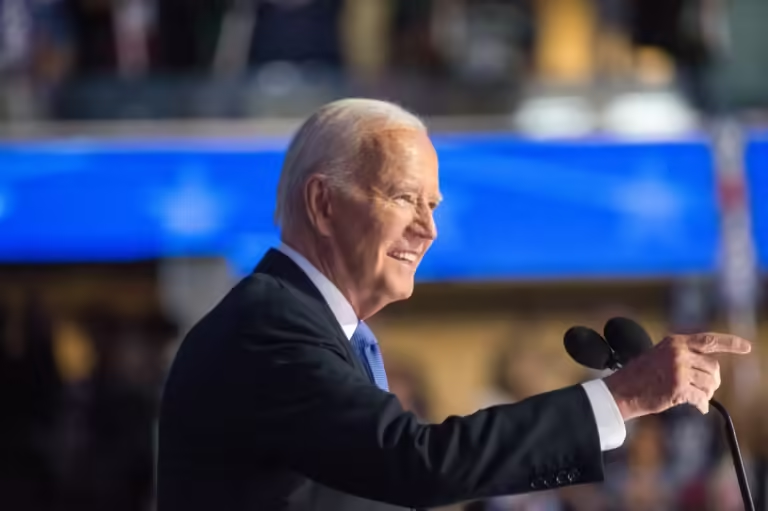The wireless carrier that allowed deepfake robocalls of President Joe Biden to be sent to New Hampshire voters during the state’s Democratic primary has reached a settlement with the Federal Communications Commission (FCC), the commission announced on Wednesday. Texas-based Ringo Telecom will pay a $1 million civil penalty in the voter suppression settlement.
The controversy over Biden’s fake phone calls originally began when a political consultant named Steve Cramer was hired by the presidential campaign of Dean Phillips, the Democratic congressman from Minnesota who unsuccessfully tried to beat Biden to win the party’s nomination. Cramer reportedly used AI cloning technology to make phone calls impersonating President Biden, including a scripted one in which he appeared to be saying he didn’t want his supporters to vote for him in January’s New Hampshire primary.
Although Ringo Telecom did not create the robocalls, it allowed them to be sent over its network, which the FCC alleges violates the agency’s so-called “know your customer” (KYC) and “know upstream provider” (KYUP) rules. The Phillips campaign maintains that Cramer acted independently and did not know about or authorize the fake Biden calls. Cramer’s final punishment is pending before the FCC, but he faces a $6 million fine.
Incredibly, fake robocalls were both a risky endeavor and one that offered little benefit to the candidates they were supposed to support. Despite Phillips’ hard work in New Hampshire, she received less than 20% of the vote there; Biden received nearly 64% of the vote, while Marianne Williamson received just 4%. But robocalls and the FCC’s crackdown are likely to deter other mainstream political campaigns that might consider similar tactics in the future.
“Everyone has a right to know that the person on the other end of the phone is who they say they are,” FCC Chairman Jessica Rosenworcel said in a press release. “When AI is being used, that must be clearly communicated to consumers, citizens, and constituents who see it. The FCC will take action when trust in our communications networks is at stake.”
In addition to the fine, the FCC said in its announcement that Lingo has agreed to three changes to ensure it knows who is using its wireless network:
- A-level authentication, the highest level of trust that can be given to a phone number, is only applied to calls where Lingo Telecom itself provides the caller with a caller ID number
- Obtain independent supporting records to verify the identity and business operations of each customer and upstream provider
- Only send traffic from upstream providers with strong robocall mitigation capabilities
A mechanism has been put in place to respond to traceback requests.
The FCC also positioned this enforcement in the context of America’s geopolitical adversaries abroad who may be seeking to influence U.S. elections. However, it should be noted that this was an exclusively domestic operation spearheaded by Americans wanting to back Phillips.
“Whether by domestic operatives seeking political advantage or sophisticated foreign adversaries conducting malign influence or election interference activities, the misuse of AI voice cloning technology, combined with caller ID spoofing, on U.S. communications networks could pose a significant threat,” FCC Enforcement Director Royaun A. Egal said in a statement. “This settlement sends a strong message that communications service providers are the first line of defense against these threats and will be held accountable for doing their part to protect the American people.”

